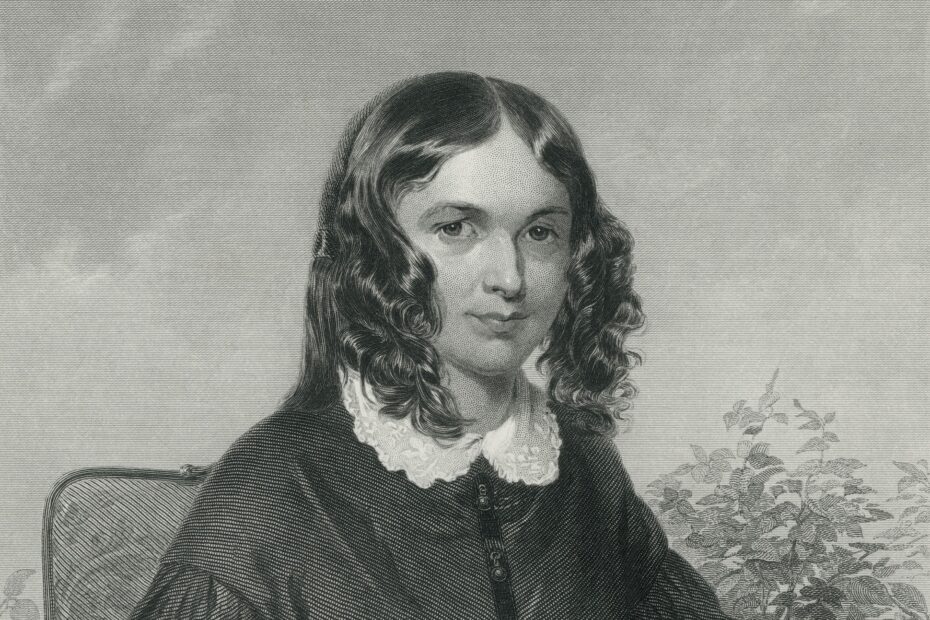In Elizabeth Barrett Browning’s Aurora Leigh, the Victorian verse novel stands as a critique of the domestic ideology of its time. Dino Felluga’s assertion in “Verse Novel” (2007) suggests that while the narrative structure may seem to align with traditional domestic plots, Browning effectively undermines domestic ideology through her unconventional approach, challenging societal norms and constructs through her portrayal of Aurora throughout the work.
Aurora Leigh explores the tensions between individual ambition and societal expectations, particularly regarding women’s roles within the domestic sphere. “We witness a consistent questioning of middle-class culture’s indoctrination of women in the ideology of domesticity” (FELLUGA, 2007, p. 175). The author criticises the way women were generally treated in Victorian England and investigates the question of what role should they play in society. “Two figures, Aurora’s aunt and Romney Leigh, are made to represent the period’s dominant hegemonic views about gender, particularly the notion that men and women inhabit naturally separate spheres” (FELLUGA, 2007, p.175). The mainstream thought was that the woman’s sphere was in the home, being virtuous and creating a safe, secure and comfortable space, inspiring men and children to be better. The image of the “angel in the house”, a nearly supernatural creature filled with virtue and care, ultimately became the ideal that women during this time should aspire to. Whereas the men’s sphere was out there in the world, conquering and stuggling and exploring. Aurora Leigh is Browning’s attack on this ideal of female behaviour.
Aurora is educated by her aunt to be a typical middle class victorian woman, equipped to be the angel in the house. Any education beyond this was seen as transgressive during the time. Luckily, Aurora is able to get into her father’s library, where she can read greek classics and epics that were usually reserved for men, being able to educate herself beyond the typical and shallow traditional female education. Women were being held back by society, and Browning’s subversive verse novel proves her point that women can be great writers. It is a narrative of development, in which Aurora realizes her vision of herself as a poet at the end. The author pushes against education limitations and stereotypes, making Aurora constantly overcome limitations placed upon women.
Aurora’s character has an unwavering commitment to her art and intellect. Unlike the passive heroines often found in domestic novels of the Victorian era, Aurora actively seeks to carve her own path, refusing to conform to societal norms that dictate her role as a dutiful wife and mother. Furthermore, Browning uses Aurora’s narrative to critique the institution of marriage and its implications for women’s freedom and self-expression. Aurora’s rejection of Romney’s proposal embodies her refusal to sacrifice her artistic integrity for the sake of societal expectations. By choosing to prioritize her own autonomy over romance, Aurora challenges the notion that a woman’s fulfillment is inherently tied to marriage.
Moreover, the author employs the verse novel format to subvert traditional literary conventions and challenge readers’ preconceptions. The blending of poetry and prose allows for a multifaceted exploration of Aurora’s thoughts and emotions, inviting readers to empathize with her struggles and aspirations.
In conclusion, Elizabeth Barrett Browning’s Aurora Leigh stands as a groundbreaking work that challenges the prevailing domestic ideology of the Victorian era and confronts the patriarchal structures that confine women to the domestic sphere, advocating for women’s agency and autonomy in pursuing their passions.
Publicado por

Melissa Costa
Graduanda em Letras Inglês/Literaturas pela Universidade do Estado do Rio de Janeiro (UERJ). Apaixonada por música, cinema, literatura e cultura pop. Amante das artes. Instagram: @mel.is5a
